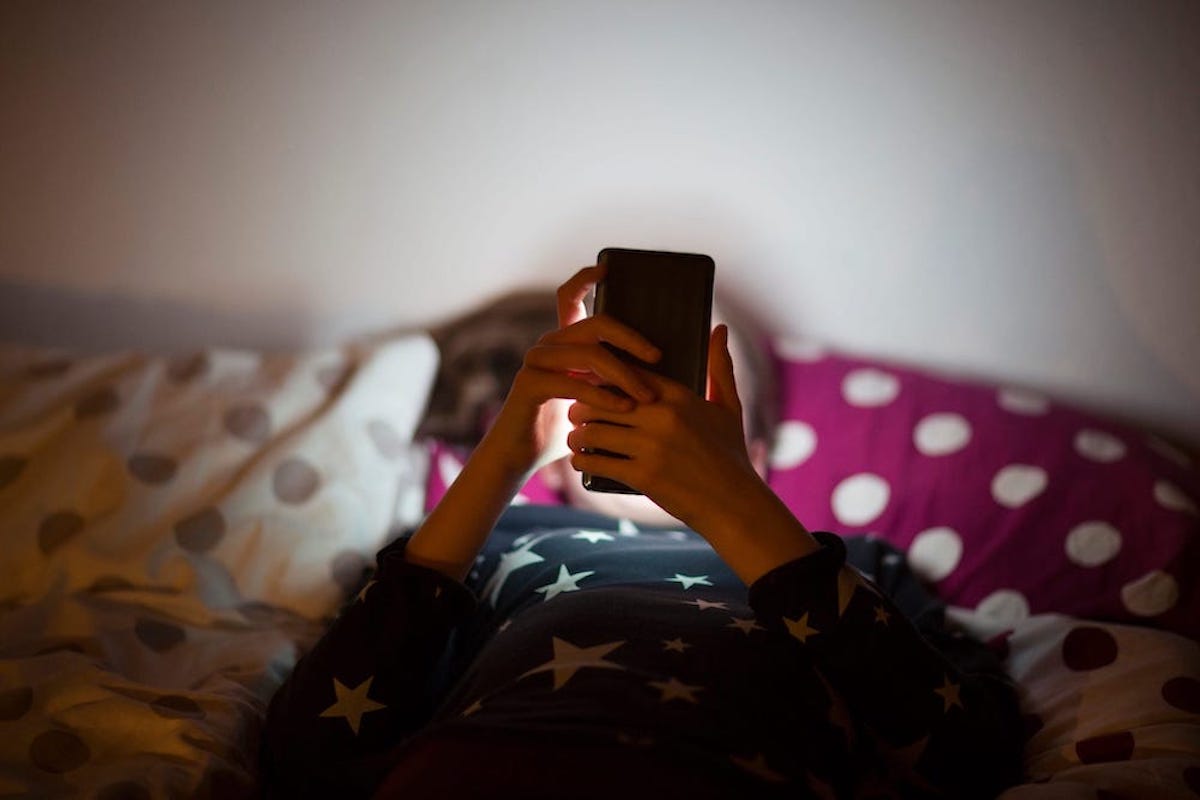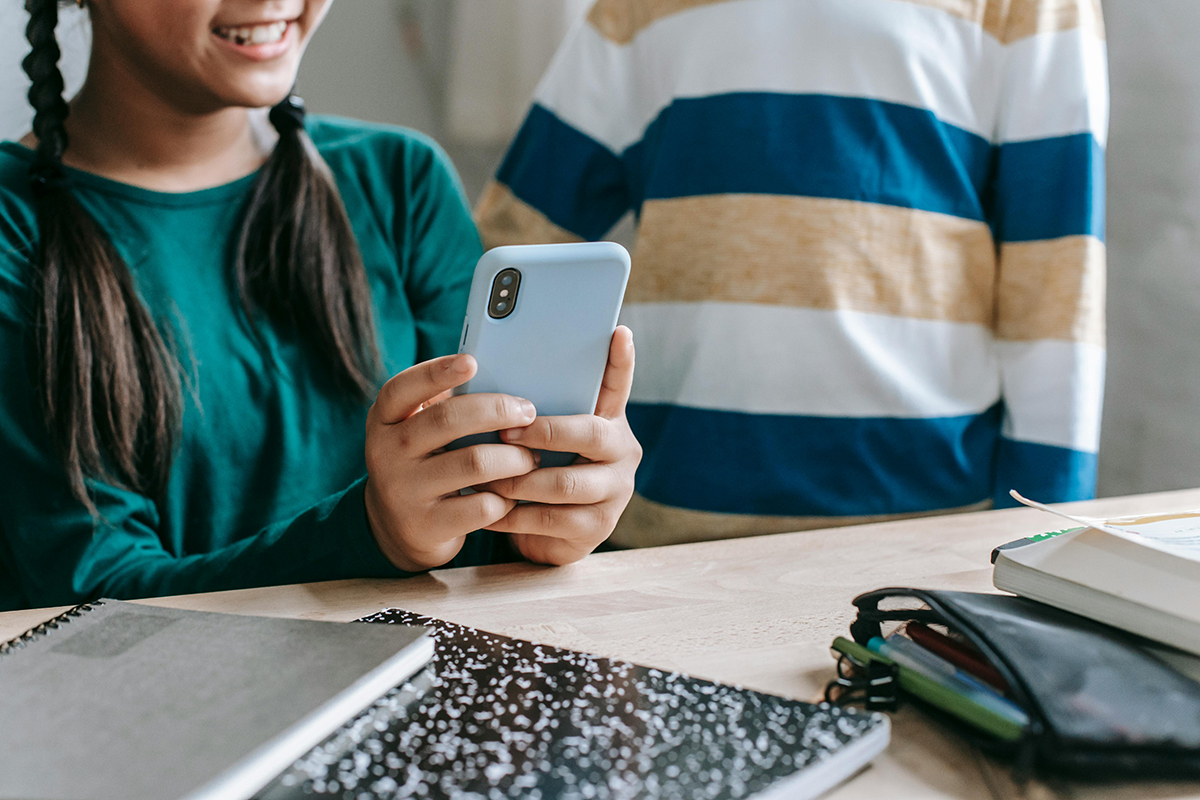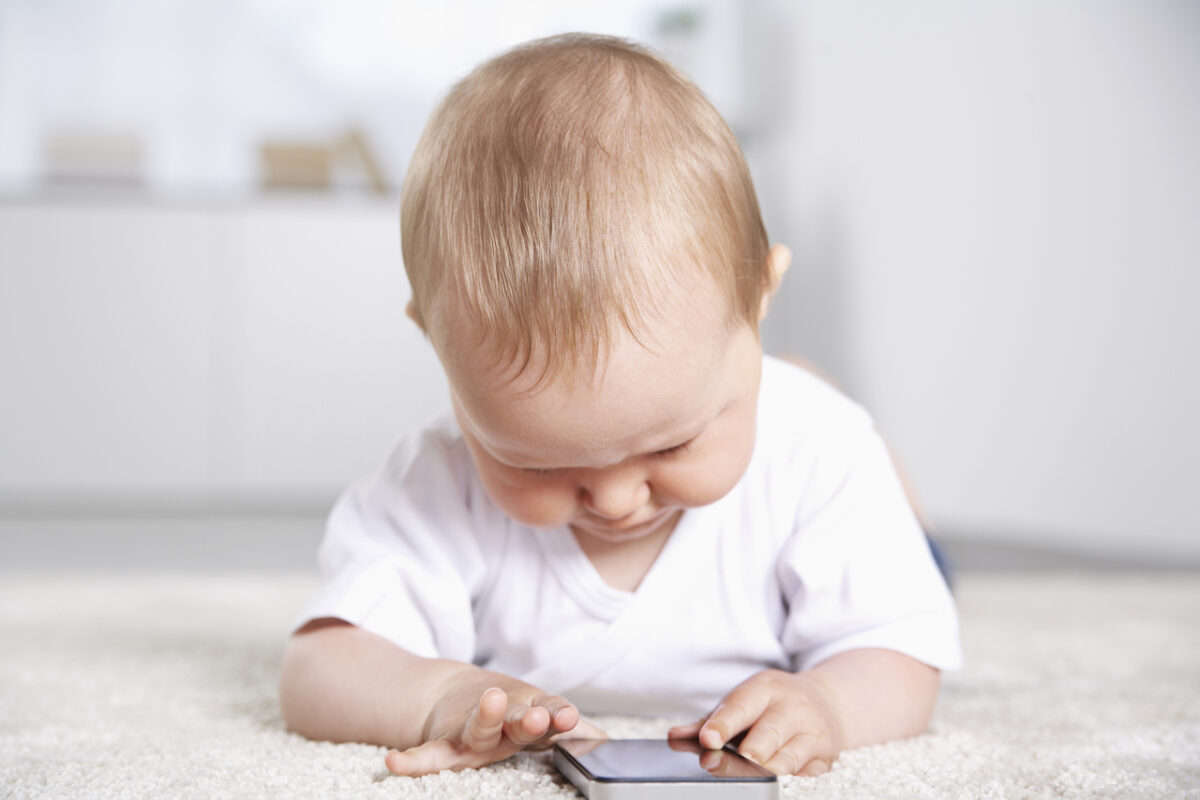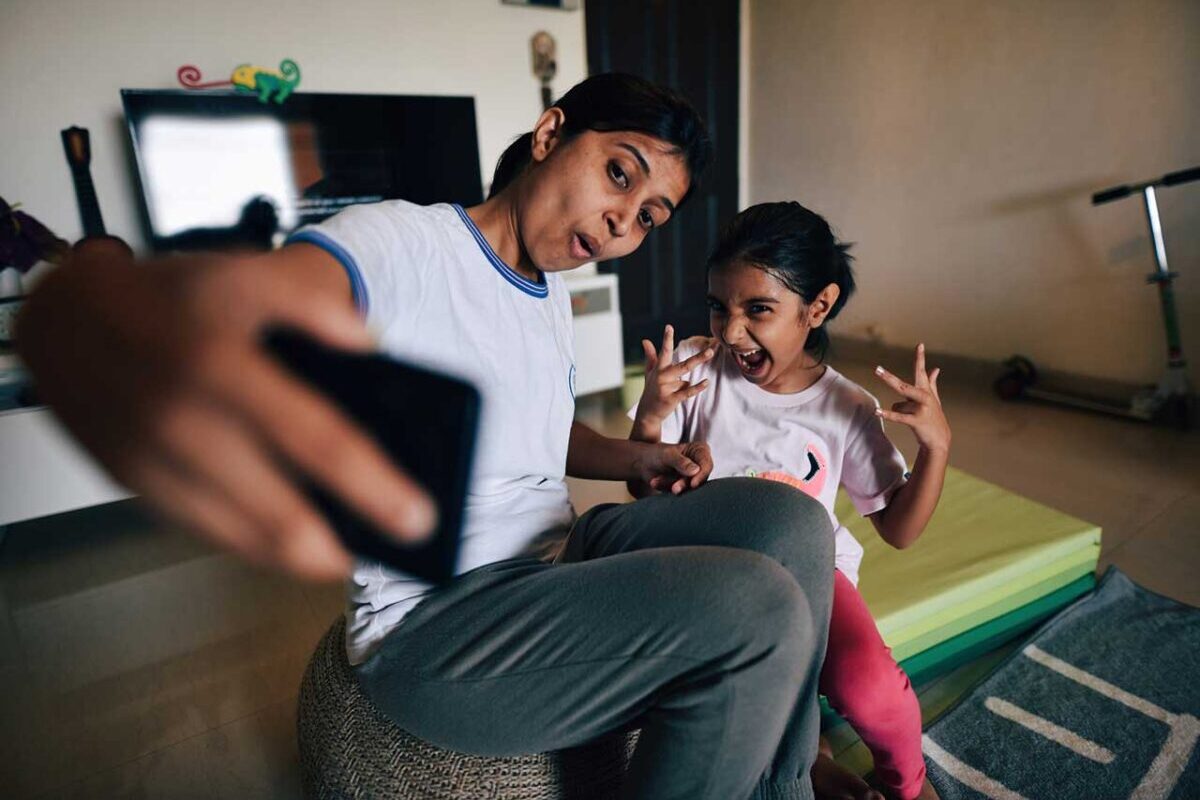Today’s podcast episode is a big one. I got a chance to sit down with the U.S. Surgeon General, Dr. Vivek Murthy, to talk about social media. It perhaps reveals something about my own parenting stage, but this feels to me like one of the hardest issues we face as modern parents. We don’t have our personal history or our own parents to fall back on. The data is (as Dr. Murthy and I discuss) basically quite poor. The possible risks seem enormous — and there are risks to both having and not having social media. It is at once infinitely important and completely impossible to make the right choice.
In this conversation, we talk about Dr. Murthy’s perspective — both professional and personal — what we want out of the data, and where the role for parents ends and the role for policymakers begins. Stick around until the end here, since we’ve got some great ideas from a few other guests on how to parent around phones.
To spark your interest, here are three highlights from today’s conversation:
Is social media safe for kids?
Emily Oster:
My read of the data is actually we don’t really know for sure what the social media impacts are on kids, and in fact that they probably vary. And you should tell me if you disagree, but that’s my initial read. And also the quality of data is very poor. There’s nothing randomized, there’s a lot of cross-sectional evidence. And we’ve seen things like this before. So we’ve seen these kinds of similar types of studies, sometimes similar kinds of rhetoric around things like screens, maybe even video games, and some of those results didn’t ultimately hold up when we had better data.
So for someone who comes in, they say the data doesn’t really support your view that social media is the problem. What do you say? I mean, do you read that data differently?
Dr. Vivek Murthy:
Well, I think you have to step back and ask: what’s the question that we’re trying to answer here? And I think if you’re, to me as a parent myself as well as a doctor and surgeon general, the most important question that I have is a question that parents were asking me. Which is “Is this safe for my kids?” That’s a different question and, I think, the right question. And it’s a question that we ask, actually, often — with medications, with children’s toys, with other things that we expose kids to. And one of the key conclusions we make, in fact one of the very first ones that I make in the advisory, is that, to your point, we don’t have enough data to actually say with clarity that this is safe for our children, number one. There are open questions that we need to answer.
And part of the challenge that I worry about is that we don’t have full access to the data we need to do the analysis that researchers want. This is a theme we constantly heard from researchers, regardless of their views on this issue, across the spectrum, which is that they felt that they were not able to get full access to the data from social media companies. So that’s the most important conclusion we make and a point of concern.
What don’t we know about the risks and benefits of social media?
Emily:
Let’s say you were in charge of a government agency and a very important person. What is the study you would design? What is the thing you would want to do in the data? What do you want to see?
Dr. Murthy:
I want to understand which children are most at risk, recognizing there’s a heterogeneity in differences across kids in response. Some might be fine, others have terrible impacts, when it comes to social media use. The second thing I want to understand is what kind of utilization generates harm versus benefit? And that has to do with how I’m using it, what time of the day I’m using it, how much I’m using social media.
One of the things that concerned me is that a third of adolescents say that they’re staying up till midnight or later on their screens. A lot of that is social media use, taking away from children’s sleep—
Emily:
Which is so important.
Dr. Murthy:
So important. And we know — I just want to say this, to be clear for all the parents out there — that when kids’ sleep is compromised, that puts them at increased risk for a host of bad outcomes, including poor mental health outcomes. So that’s a second piece that I’d want to understand.
But the other big thing I want to understand is around interventions. The companies are telling us that they are putting measures in place to keep our kids safe. Are those actually working? We should take a data-driven approach to understanding the answer to that question.
What are the roles of parents and policymakers when it comes to social media?
Dr. Murthy:
I come to my job first and foremost as a parent, and particularly to issues around youth mental health, which is why I’ve made this such a focus of my time as surgeon general. But as a parent, I never want to feel like things are being hidden from me about the impact of the things my kids are using, whether they’re toys they’re using, medications they’re using, anything. And in this case, when I talk to parents around the country, which I do all the time, parents I think appropriately feel frustrated that they aren’t being given the full story here about the impact that these platforms may be having on their children.
And look, it’s not like parenting got easier over the last 20 or 30 years, right? Parenting has always been challenging. But what we have asked parents to do now is, on top of everything that was hard, take on an entire new phenomenon and somehow manage it, even though we haven’t had clear recommendations from medical societies and others on how to actually manage it. So I just think that at a time where parents themselves are struggling, at a time where we know that the mental health of parents is being profoundly challenged by all the circumstances they’re dealing with, and when we know that the mental health of parents impacts the mental health of kids, I just think we’ve got to have parents’ backs on this. And this is why I’m really pushing in this for policymakers to step up, provide the funding we need for research, ensure that we have the data transparency from companies, and put these safety standards in place. We’ve got to start now. Kids only have one childhood. A year in the life of a child matters immensely, and we just don’t have time to wait.
Full transcript
This transcript was automatically generated and may contain small errors.
So today I’ve got the US Surgeon General, Dr. Vivek Murthy, who has been very vocal about changes that are needed, in his view, to social media platforms, and limits on when kids can get access to these tools. Dr. Murthy and I talk about why he is interested in setting those limits, and I push back a little bit on some of the concerns I think parents have on the other side.
Dr. Murthy and I both love data. We talk about how we want more of it, and we’re also both parents, and we talk about how hard it is to make these decisions for yourself and also think about them for everyone else. I really appreciated this conversation and I hope that you will too.
After the break, Surgeon General Dr. Vivek Murthy.
This is a theme we constantly heard from researchers, regardless of their views on this issue, across the spectrum which is that they felt that they were not able to get full access to the data from social media companies. So that’s the most important conclusion we make and a point of concern. But with regard to harms, I think there is certainly a lot of correlational evidence that we have. And I know in some of your writings you’ve pointed that out that there’s obviously a difference between correlational data, causation data. That’s something that we’ve got to think about.
The causation data that we have, arguably we would love to have more of that has stronger analysis. There are small studies that are done, some natural studies based on the rollout of platforms like Facebook at college institutions, which those results, while they’re concerning, we cite some of them, they’ve been published. Ideally we’d want more of these. But one of the most important points that came to my mind and the reason that I was really pushed to do this is that I believe we should be functioning from a safety first principle here when it comes to social media and our kids, which is to ask ourselves, “is this safe?” And if we don’t have enough data to say that it is sufficiently safe for our kids to ask ourselves, “how can we make it safer?” How can we get the data to more fully understand the consequences here?
We wouldn’t just blow by that and say, “yeah, nothing to see here. Let’s just wait until other 10 years until we get data”. That would be irresponsible. What we’d say is that we would take those concerns seriously and we would say, “yes, look, maybe some people are being helped. Maybe some people are being harmed. We need to understand this more fully and approach this with caution”. And we’ve done that in the past with medications. We’ve put pauses on medications to assess them more deeply and we made things safer. One other parallel to note here is with motor vehicles. When I was growing up, and you and I are similar age ranges, so when you and I were both younger, we know that there was a time when motor vehicle accident deaths were incredibly high.
And are these easy to figure out? None of this is easy. None of this is simple. This is complicated. But I think we owe it to our kids, we owe it to parents to do the hard thing here, which is to have the debate of what these safety standards should be and actually put them in place. Because the current approach of just allowing companies to figure it out on their own and to just assure us without data transparency that they’re doing the best they can. This is not cutting it and it’s not fair to our kids or frankly to parents on whose shoulders the entire burden of managing this has been placed.
And look, it’s not like parenting got easier over the last 20 or 30 years, right? Parenting has always been challenging, but what we have asked parents to do now is on top of everything that was hard, take on an entire new phenomenon and somehow manage it even though we haven’t had clear recommendations from medical societies and others on how to actually manage it. So I just think that at a time where parents themselves are struggling, at a time where we know that the mental health of parents is being profoundly challenged by all the circumstances they’re dealing with, and when we know that the mental health of parents impacts the mental health of kids, I just think we’ve got to have parents’ backs on this. And this is why I’m really pushing in this for policymakers to step up, provide the funding we need for research, ensure that we have the data transparency from companies and put these safety standards in place. We’ve got to start now, kids only have one childhood. A year in the life of a child matters immensely and we just don’t have time to wait.
And last year at school they told us, download this bird app on your phone. Download the bird sound app on your phone. So I told somebody this once and they were like “the bird app, like Twitter?” I was like, “no, an educational app about birds”. But she didn’t have a phone. And generally the school is great and they don’t let you use phones at school. They have a sort of pretty aggressive, no middle school phone policy. But there was this underlying assumption that was like, of course your kid has a phone where at home they can go walk around their backyard and record birds. And in the end we worked around it, but ultimately we got her a phone basically because it felt like she needs this to navigate through pieces of her world that sort of have nothing to do with like the social environment’s not well set up for me to wait until my kid is in eighth grade to get them a phone because I need the bird app. And even if they don’t need the bird app, then people worry, well, my kid’s going to be ostracized. There’s a group chat. What about Snapchat? Their friends are planning things, they’re left out. And so what do you tell parents [inaudible 00:15:59] I can’t hold this line, I just can’t hold it.
But here’s what I think we have to do. Number one, I think we should make a distinction between social media and technology more broadly. From a safety purposes, I can absolutely understand that someone might want their child to be able to make phone calls or texts, have access to maps, to be able to navigate the world for their safety and to reach out to their family if they have an emergency. And then you can do that, actually it turns out without necessarily having social media on your phone. And we can in a separate conversation, talk about how to do that, how we can help design technology that makes that possible. Some of it’s actually going back a little closer to what we think of as a dumb phone era. But the point is there’s a distinction between tech and social media. But the second thing I think to remember here is that this is hard to do alone, which is why I think it’s so important for parents to increasingly support one another and partner with one another in this regard.
Because it’s harder to do these changes alone but if you are part of a group of two parents, three parents, four parents who are actually trying to make these changes for their kids, not only do you have more support, but your children also may start to get the sense they’re not the only ones alone. Finally, let me just say this, I have now met and spoken to many parents and kids across the country who made a decision during early adolescence not to use social media. This is a minority of children, to be very clear. It’s a small minority. And it wasn’t easy for those parents either. A lot of times they didn’t have other parents who are doing the same thing. They’re the only ones out there, and that was really tough for them. But almost to a T, all of them, especially the kids, say that they’re grateful that they went down that path of delaying use or having guardrails around their use of social media because even though they were frustrated and angry in the beginning, they now feel the benefits of it and can see it. And specifically benefits and not necessarily being subject to the kind of anxiety that they see in their friends and not having their attention constantly diverted to devices, detracting from sleep, conversation with others, et cetera.
I’m not saying any of this is easy, but we’ve gotten ourselves into a deep hole. Digging out of it is not going to be simple, but one thing I think that can make it easier is if we work together, support one another and partner as parents. It’s something that my wife and I are planning to do as our kids get older. My kids right now are five and six, and as young as that may seem-
So we’ve got to do this together as parents, and I think doing it alone is incredibly hard. I really sympathize with parents out there who are navigating this, and all of us are kind of in a similar boat here because this is not easy. Which is again, finally why we need the support and assistance of policymakers here to establish manageable standards here so that we can make it a bit easier for parents, give them more clarity and guidance and ensure that, look, I don’t have to think when I buy a toy in the store about whether or not there’s lead paint on that toy, whether it’s going to poison my child. I shouldn’t have to think about that. When your kid turns 16 and you perhaps want to get them into a car, we don’t say to you, “you know what why don’t you as a parent, go assess the brakes by yourself? Make sure that the frame is strong enough so can sustain either a collision, make sure that the airbags are up to standard”, we don’t say that because that’s ridiculous. These are complex technologies that we need independent standards and we need independent enforcement. And that’s what we’ve got to have with social media too.
And I do think these restrictions can be part of this, but ultimately it is about navigation. Eventually your kid is going to have a phone, very likely most adults do, and we don’t want it to be like we tell them they can’t drink, and then on their 21st birthday, they have 21 shots. We don’t want it to be, you can’t have any phone. And then as soon as you get your phone, like, all you do for 24 hours a day is post these pictures that you wish your dad had posted of you on social media just in a crazy manner.
And finally, I would just consider this too. No parent wants to feel like they’re being told exactly how they should be parenting their child. Or as parents, and I feel this too, I want to be able to know what the guidance is, what the data says, and then look at my child and figure out how it applies to them. But I think that’s not the circumstance, and I don’t think we should take that right away, but that’s not the circumstance that we’re in now. We’re in a circumstance where parents are just being utterly overwhelmed by new technology that they didn’t grow up with that’s rapidly evolving, that is frankly different from other tech advances in the past. Sometimes people think, Hey, is this the same moral panic that we experienced when TV came on the scene, when telephones arrived?
You couldn’t do those things. But now with your smartphones in particular, people have 24/7 access, and we know our kids are actually losing sleep literally as a result of these devices. And finally, these devices are also designed to maximize the amount of time spent on them. And what I care about as a doctor is the quality of time that kids are spending on them. But the platforms are maximizing quantity because that is what the revenue models are based on. In that universe, when you’re pulling kids in more and more and more, keep in mind that kids are not little adults, as you know well, Emily, and as all parents know too, they’re at a unique stage of brain development, particularly in early adolescents where we know in that phase of early adolescence, kids are more prone to being influenced by social comparison and by social suggestion, both of which are bound in overwhelming abundance on social media. So this is why I actually think what we’re dealing with with social media is fundamentally different and more transformative than what we saw with prior technologies. And I do think the concern that you’re hearing, and I’m hearing all the time from parents, is actually warranted. I don’t think it’s something to be blown off as just routine concern about technological advances.
Community Guidelines

















Log in